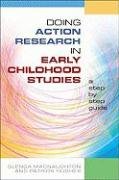

Most ebook files are in PDF format, so you can easily read them using various software such as Foxit Reader or directly on the Google Chrome browser.
Some ebook files are released by publishers in other formats such as .awz, .mobi, .epub, .fb2, etc. You may need to install specific software to read these formats on mobile/PC, such as Calibre.
Please read the tutorial at this link: https://ebookbell.com/faq
We offer FREE conversion to the popular formats you request; however, this may take some time. Therefore, right after payment, please email us, and we will try to provide the service as quickly as possible.
For some exceptional file formats or broken links (if any), please refrain from opening any disputes. Instead, email us first, and we will try to assist within a maximum of 6 hours.
EbookBell Team

4.4
32 reviews
ISBN 13: 9780335228621
Author: Macnaughton
"This is a very useful and practical resource that will help the reader create the structured approach essential to any successful action research project."
Early Years Update
Written in a lively and accessible style, this is the essential step-by-step guide to conducting your own action research project. The book introduces and evaluates different approaches to action research and explores how they can be applied in early childhood settings to create positive change and to improve practice.
Using varied illustrations and case studies of contemporary projects in diverse early childhood contexts, the book addresses specific issues and challenges that you might face when conducting action research in such settings.
Each chapter offers gentle guidance and support at a specific stage of the research process, from choosing your initial topic to formulating your research question, through to sharing the lessons of your project.
The book's key features include:
Doing Action Research in Early Childhood Studies is an essential resource for students and practitioners of early childhood studies.
Step 1: Choose a social practice to change or improve.
Step 2: Ask a question about your chosen social practice.
Step 3: Learn more about the action research family.
Step 4: Learn more about your topic from the literature.
Step 5: Learn more about your ethical responsibilities.
Step 6: Learn about reflection, critical reflection, and practice.
Step 7: Map the practicalities of researching in your context.
Step 8: Plan to make your research rigorous and valid.
Step 9: Form an action research group.
Step 10: Gather 'baseline' data.
Step 11: Create a change and collect data about its effects.
Step 12: Analyse your data.
Step 13: Deepen and broaden your data and understandings.
Step 14: Choose a further social practice to change or improve, perhaps guided by a new research question.
Step 15: Draw conclusions from your analysis.
Step 16: Share the lessons of your project.
action research topics in early childhood education
action research in early childhood education
examples of action research in early childhood education
action research in preschool education
early childhood action research
action research in early childhood education pdf
Tags: Macnaughton, Action, Childhood